International Year of Family Farming: Saving Seeds, Protecting Food Sovereignty
By Jan Slomp, President, National Farmers Union
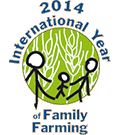
The timing to declare 2014 the International Year of Family Farming is perfect! It is time for a change in the direction of agricultural policy to support family farming as the cornerstone of agriculture to produce food and feed.

For decades, society has embraced the ideology of industrial agriculture, which provides profit to a privileged few at the expense of the lasting health and wellbeing of people, biodiversity, the environment and the planet. In a deregulated, export-oriented commodity agricultural production system, conventional family farmer and migrant worker alike are devalued and victimized. Unserviceable farm debt pries Canadian farmland open for a wave of international corporate land grabbing. The industrial corporate farm, with its division of labour, management and capital, gains off the backs of farmers and temporary foreign workers, while capital for inputs and services flows past local dealers and suppliers into the pockets of foreign agribusiness. Rural depopulation leaves rural communities with greatly diminished vitality and the gap between growers and eaters widens.
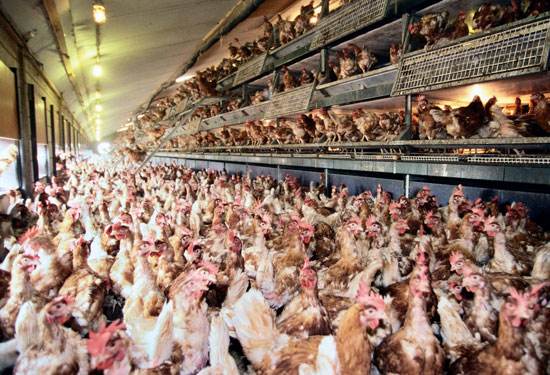
Corporate agriculture in Canada has not come about on its own; it has been facilitated by government policies. The once-strong prairie cooperative movement, along with orderly marketing and efficient regulation of rail transportation, supported the export of prairie grains. These programs and agencies have vanished in the face of government policies that favour a corporatized, deregulated free trade environment. The result for farmers has been abysmal. Despite an increase in export, Realized Net Income has dropped and total debt has skyrocketed.
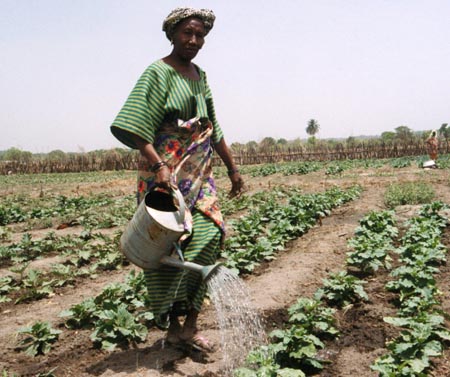
We need alternatives to this model, and they are already out there. Eaters across Canada are increasingly concerned about the food they eat - particularly about the effect of food production on health as well as social and ecological wellbeing. Innovative farmers are catering to this burgeoning market and eaters and farmers are establishing new relationships based on trust as well as social and ecological values - models for food sovereignty and Canadian agriculture policy direction well into the future. Similar relationships are being renewed worldwide, offering endless opportunities and win-win scenarios to an increasing number of people. Family farms that are rooted and intertwined in their communities are essential to rebalancing societies, economies and ecologies – effectively recreating the “culture” of agriculture.

Over centuries, plant breeding succeeded because genetic material was freely shared. Hundreds of generations of farm families selected and saved seeds, animals and other life forms to bring the wide variety of foods we eat today. For millennia, those careful selections were made and propagated solely to benefit future generations. Privatizing the germplasm our ancestors selected will stifle the natural genetic adaptation of food crops to various climatic conditions, which is essential to maintain the genetic diversity and achieve food sovereignty while dealing with climate change.
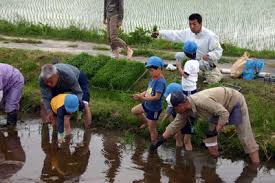
Canadian family farmers however, are threatened by the “Ag Omnibus” Bill C18, the “Agricultural Growth Act,” which lures farmer support through programs such as multiple year cash advance payments secured by crops not yet grown. Farm debt of course rises even higher. C18 also prepares the way to allow Canadian Food Inspection Agency to fast track approval of additives, alterations or processes, allowing them into our food system without review, based on data from corporate research or approval by trade partners. Bill C18 will also ensure that Canada adopts UPOV ‘91, an international seed treaty that protects intellectual property rights and provides legal mechanisms giving Syngenta, Bayer, DuPont Monsanto, Dow and other seed and chemical companies more ways to extract even higher royalties from Canadian farmers.
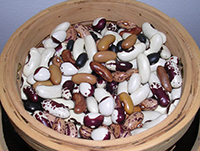
The NFU is leading a campaign, “Save our seeds. Protect our food sovereignty,” focused on defeating Bill C18. All Canadians are invited to join us, whether by becoming an NFU member, organizing petitions, letters and postcards to be sent to MPs, or by organizing public meetings in your communities. We will provide a toolkit with detailed instructions about how to organize a public meeting and use the postcards and petition forms along with fact sheets and a power point presentation to show at the community meeting. You will be able to download the toolkit from the NFU website at www.nfu.ca. NFU members can be available as resources in person or by Skype or conference call.
We must rise up and defeat Bill C18. It is an insult to farmers and the family farm as well as to ecosystems across the planet.
- Log in to post comments

